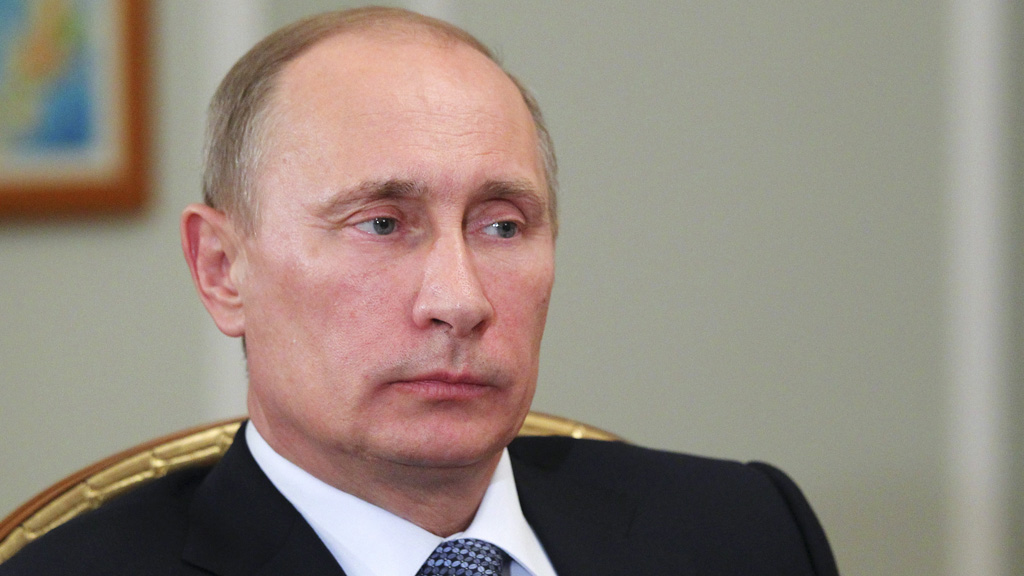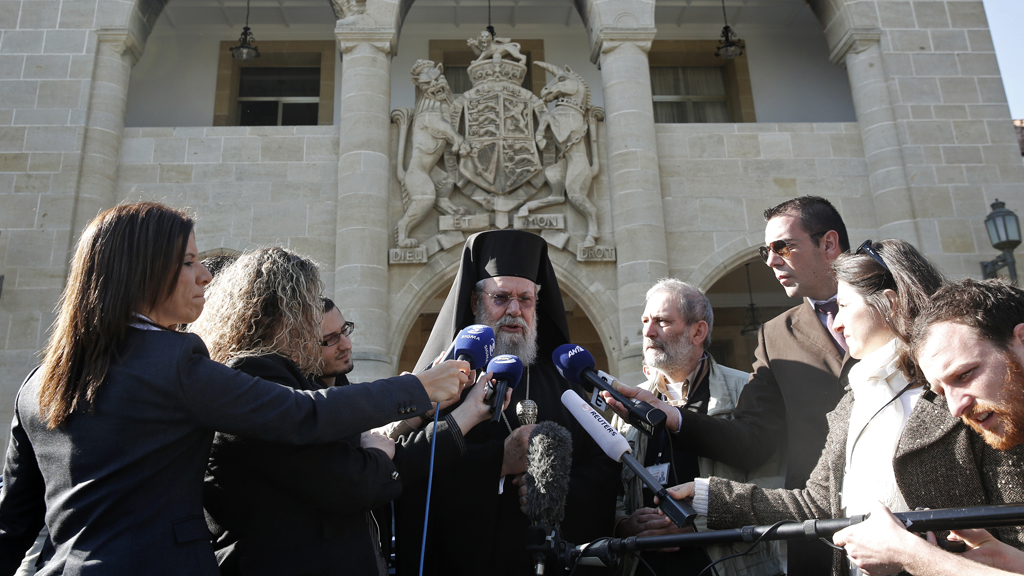Cyprus bailout: who will come to the rescue?
As the bank closure is extended until next week, Cypriot business leaders warn of a question of survival as the government struggles to find a way out of its financial crisis.
Quoting a government official, Reuters reported that banks on the Mediterranean island are to remain closed on Thursday and Friday. As next Monday is a bank holiday, banks will not re-open before Tuesday, meaning Cyprus faces over a week without normal banking services.
Phidias Pilides, of the Cyprus Chamber of Commerce, told Channel 4 News on Wednesday these are the most critical days for Cyprus since the Turkish invasion in 1974, adding: “Cyprus is facing – on the economic side – a question of survival.”
On Tuesday the Cypriot parliament decisively rejected a plan to levy a one-off tax of up to 9.9 per cent on deposits in Cypriot banks, putting the country’s EU bailout in doubt.
To secure the bailout, the government needs to find €5.8bn domestically.
Government spokesperson Christos Stylianides said: “A team of technocrats from each party has been set up to discuss a plan B, which has to do with the financing of the €5.8bn and its reduction. They are now at the central bank, to discuss this possibility, so that technocrats know exactly what this plan is.”
So who will save Cyprus?
Russia
Cyprus currently has a €2.5bn loan from Russia, which matures in 2016. The financial pressure on the country will ease if Cyprus can secure an extension on that loan, and a reducation in its payment terms.

Cypriot Finance Minister Michael Sarris was in Moscow on Wednesday to meet with Russian Finance Minister Anton Siluanov to ask for a five-year extension and a reduction in the 4.5 per cent rate of interest. Cyprus has also asked Russia for an extra €5bn loan, the Russian finance ministry has said.
So far the meetings in Russia have not given Cyprus what it needs, and Mr Saris stayed on for more talks, hoping to find a resolution.
“We had a very honest discussion, we’ve underscored how difficult the situation is,” he told reporters. “We’ll now continue our discussion to find the solution by which we hope we will be getting some support.”
“There were no offers, nothing concrete … but we’re happy with a good beginning.”
Russia could come to Cyprus’s rescue in another way, and not through the government. Reports in the Greek media have suggested that the government may be considering selling Cyprus Popular Bank, the second largest bank in Cyprus, to Russian investors.
But Mr Stylianides said: “The government denies reports that the Cyprus Popular Bank has been sold to foreign investors.”
In Russia, the prospect of a deal to save Cyprus drew criticism in parliament, where the Deputy Speaker of the Duma Vladimir Zhirinovsky, drew parallels with the foreign policy of previous regimes, saying:
“If we agreed that we in Russia will again treat Cyprus as a mama’s boy, then it’s just a continuation of Soviet foreign policy. Then we were giving money to prop up red flags, now we are propping up the money of our super-rich people.”
The Church
Cypriot religious leaders have stepped forward to attempt to allieviate the crisis. After meeting the country’s president this morning, Archbishop Chrysostomos said the Orthodox church was willing to mortgage its assets to invest in government bonds.

The orthodox church owns a hefty stake in the country’s third largest bank, as well as property and even a brewery.
“The entire wealth of the Church is at the disposal of the country…so we can stand on our own two feet and not those of foreigners”, he declared.
Last week Archbishop Chrysostomos criticised “Europeans’ meaness” and said he would prefer the cash-strapped country abandons the euro as its currency rather than accept a bailout deal setting the economy back decades.
‘Not sustainable’
President Nicos Anastasiades is also meeting representatives from his troika of creditors, the IMF, the European Central Bank and the European Commission. They’ll have to agree to any alternative bailout plan which Cyprus might come up with.
Banks across the country have now been closed for three straight days to avoid any kind of mass attempt to empty accounts: they could stay shut for the rest of the week.
But the Austrian finance minister Maria Fetker warned the ECB would not keep banks in Cyprus afloat indefinitely. Without a bailout agreement, she said, the banks would be unable to open. “That is a more horrible scenario than what is on the table now”, she said.
And, she insisted, the ECB would not allow Cyprus to draw on a “bottomless pit”.
Germany said Cyprus had no-one to blame but itself for its parlous financial state, saying its debts been allowed to spiral too high. “From a political point of view, I say that Cyprus needs a sustainable banking sector”, said Chancellor Angela Merkel. “Today’s banking sector is not sustainable.” However, she said that she hoped any depositors with less than 100,000 euro savings would be spared.
Ordinary Cypriots are still in limbo: no word from Moscow on an alternative bailout, as the Kremlin denied any plans to offer Cyprus more money. And later today they will find out whether their banks will reopen again, or stay closed until the end of the week.